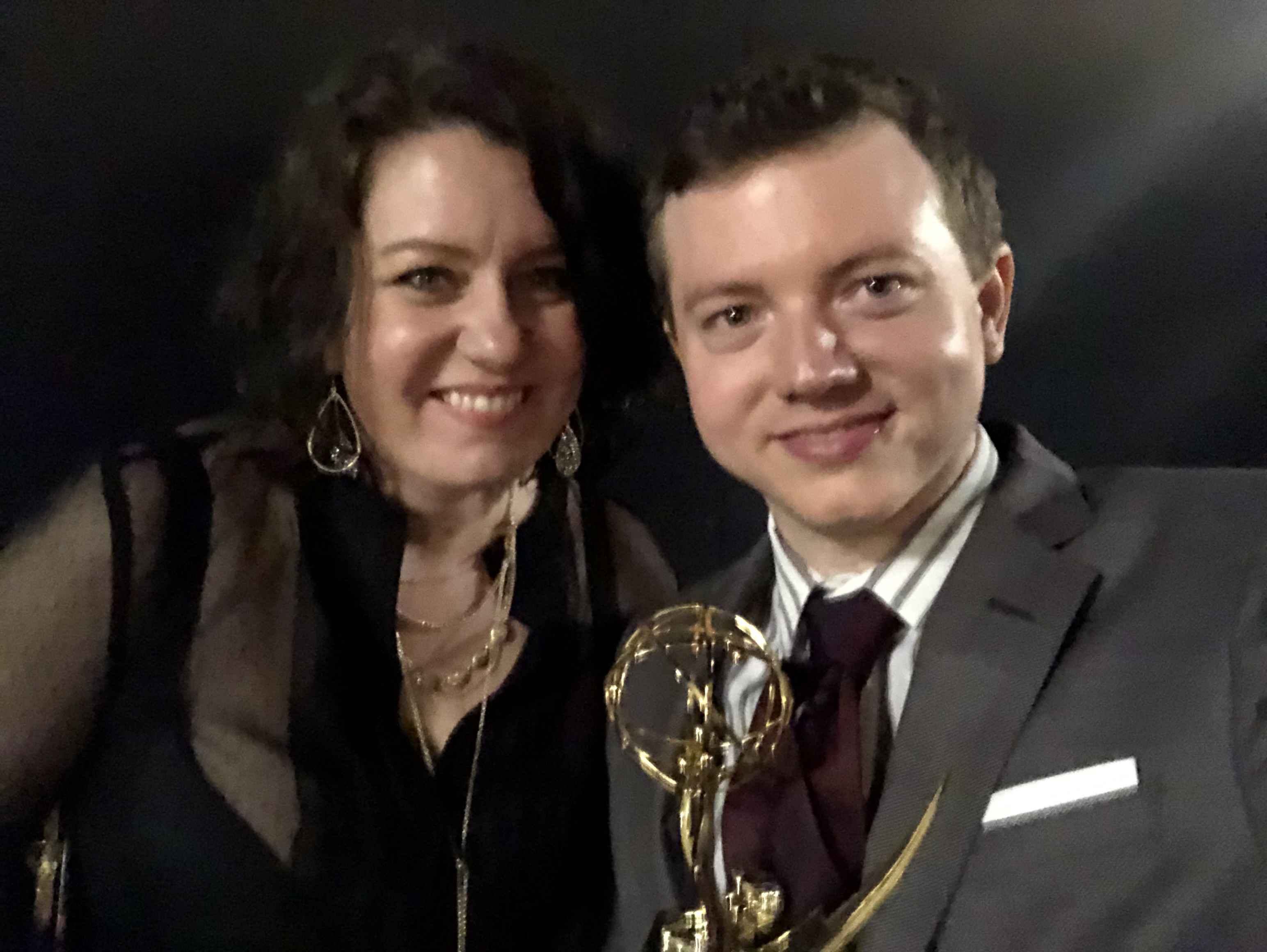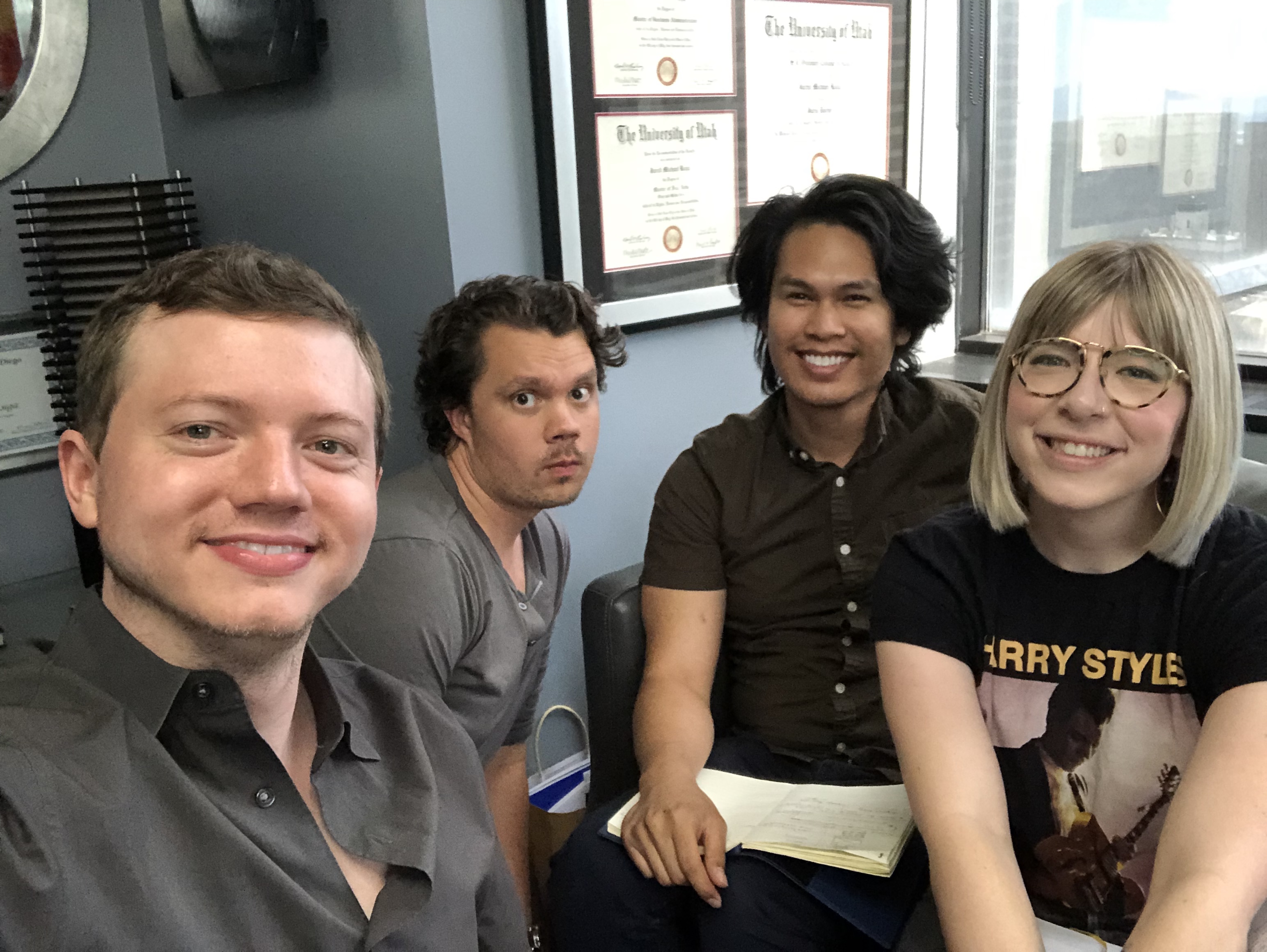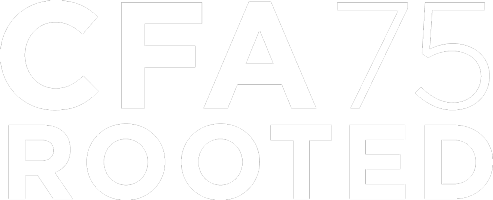MAKING ART WORK is a series that taps into the knowledge and experience of seasoned creatives from our community and beyond for the benefit of our students.
Jared Ruga is an Emmy®-winning and GLAAD-nominated producer, writer, director, and creative executive. In 2017, Ruga founded Vavani Productions. Their first project, feature-length documentary “QUIET HEROES,” premiered at the 2018 Sundance Film Festival, was internationally distributed, and won a Daytime Emmy® Award. In the nonprofit sector, Jared has served in various board, committee, and advisory roles at Sundance Institute, Voterise, Equality Utah, and Restore Our Humanity, and is co-founder and board member of the Impact Guild and Lightspark Foundation. An alumnus of the Department of Film & Media Arts, Ruga earned JD, MBA, and MFA degrees from the University of Utah and BBA and dual-BA degrees from the University of San Diego, where he was inducted into multiple honors societies, including Phi Beta Kappa.
How did you find your way to your current career as producer and CEO from your undergraduate education?
At USD, (University of San Diego) I didn’t know exactly what I wanted to major in. I thought maybe someday law school, but I had always been interested in film & media arts. They didn’t have a film program at USD, so I did the closest thing where I could still get to film: communications with a media emphasis. I did philosophy because it was good prep for law school, and that was still in the back of my mind. I was minoring in business. I ran some numbers on my credits and thought I could probably upgrade my minor to a major in business. It was a year-and-a-half process to get there to triple majoring, it wasn’t like I woke up one morning and decided to, but more of a “while I’m here.”
That same “while I’m here” approach served me at the U as well. I had gotten into both the MFA program in Film & Media Arts and law school. I knew that I wanted to work in entertainment, and that I didn’t want to start at the lowest rung as a production assistant. I researched the paths into the industry and found the sort-of leap froggy way to do it is to go to law school, practice law for a couple of years and then specialize in entertainment law, then go in-house with a network or studio in the legal and business affairs department. It’s the fastest path to becoming a senior executive in entertainment media.
So, my entry level job would be a lawyer instead of running the photocopier or being a coffee runner.
The first semester of law school I made two decisions. One was that if I was ever going to get an MBA, I should probably just do it right then. I knew once I started working I was not going to want to leave to go get another degree. So, I ended up doing the JD/MBA, and the MFA I kept because that was my passion.
The other thing I learned my first semester was that I didn’t want to be a lawyer. The day-to-day of being a practicing attorney was not something that I saw as a fit with my personality. It took me farther away from the reason I was doing it, to be creative and be producing.
The nice thing about the MFA film program at the U is that it’s so self-directed, you really get to define what the experience is. If you want to focus on screenwriting, and come out with a portfolio before you graduate, you can do that. If you want to have a catalog of ten short films that show your director reel, you can do that. I used my time to get the broadest survey I could of all the hard skills, the technical aspects of producing films because I had never had formal training. I had learned theory through Communications, but never hands on training in technical filmmaking. And I also wanted to focus on writing, and leave with a portfolio.
When you are inexperienced, you lack the reasons why not to do something. I didn’t know how hard it was going to be, and as a result, I dove right in. That’s one of the advantages of the blissful ignorance of inexperience — you don’t know hard things are to actually pull off and as a result you just dive in and go for it.
On making Emmy-winning documentary “QUIET HEROES” while still in school:
In January of 2015, I got connected with the story of Kristen Ries and Maggie Snyder. I had heard of them, but didn’t know the full story of what they did with the Sisters of the Holy Cross to treat HIV/AIDS patients at the height of the crisis in Utah. One of my law professors was helping to put together a special collection at the U’s Marriott Library. They had taken all of the material Maggie had collated over the years — she had it in three ring binders organized by year, and VHS tapes of when they had appeared on local news in the 90’s. As a film student I thought, “Wow, that is a treasure trove of archival material, all being donated to the U, and I have access to it.”
I asked, “Wait, how are we telling this story? Is it just going to go into the Marriott Library and then whoever knows about it can just go check it out, or will there be something published?” The plan was a little blurb and maybe something in the University Magazine. But this story was way bigger than that. So, I asked if anyone was producing a doc, or had an interest in any other kind of long form book, and no one was. I asked to be put in touch with Kristen and Maggie.
When you are inexperienced, you lack the reasons why not to do something. I didn’t know how hard it was going to be, and as a result, I dove right in. That’s one of the advantages of the blissful ignorance of inexperience — you don’t know hard things are to actually pull off and as a result you just dive in and go for it. The rest is history from there.
Was it surprising how successful it was?
Yeah. You’re kind of a fool if you go into something thinking it is going to be a big hit. Especially because I was a first-time producer and still in school — you can’t have delusions of grandeur about how successful your stuff is going to be, or you are just setting yourself up for a lot of disappointment. I went in with no expectations. I just thought it would be my first film and we would immortalize an important story. It took on a life of its own.
You can bet on a good story and do a good job telling it. Everything else is out of your hands. We were lucky that some of the people we convinced along the road were the programmers at Sundance, because that was our launch pad.
How did you end up starting your own production company, Vavani Productions?
I was an independent producer originally. I was starting the fundraising process in the spring of 2015, then we started shooting in the summer. I had not raised nearly enough money to make it happen by that point. Fortuitously, at the same time, the private equity division of my dad’s financial services company, Sentry Financial, was talking about building out an investment strategy for media and entertainment. They were speaking with a guy on their team that had a music background, but most of the opportunities that were coming their way were film and TV-related.
So, being a film student also in business and law school, my dad started sending me the proposals. I was just giving my advice on scripts. There were a couple other people who got involved in the process of vetting these investment opportunities. Ultimately, over the year I was finishing "QUIET HEROES," we built an apparatus to formalize this process. So, the guy that was in music got transferred over to the new startup within the company and I came on full time when I graduated. We brought Quiet Heroes in-house at that point. We were producing everything under Sentry Media Ventures, a subsidiary of Sentry Financial. But, it was confusing to the marketplace why a financial services company was producing content. So, we created the Vavani brand. So, it was now a stand-alone production company, funded by Sentry Financial.
I learned a lot in school. But I have learned just as much or more in the past four years of working full time. It’s a completely different animal. In school the stakes are your eventual student loans and what you’re learning, your grades, and whether that can help you get a job. When you’re an entrepreneur, every decision you make has the potential to create fortune or misfortune for the people who are relying on you. The stakes are a lot heavier and that’s something that I don’t know if school can teach you.
What do you love most about your day-to-day?
COVID-19 has been an interesting lesson in that regard. We went from all working out of the same office to spreading out and working remotely. Then we re-jiggered our strategy to really focus on selling the stuff we have already developed or is in process. That meant that not only were we physically distanced from one another but the work became very sequential, like we weren’t collaborating in real time. There were none of the brainstorming sessions we used to have in the writer’s room with the white boards that took up the whole wall. And production halted, which is a collaborative process with a bunch of people working at the same time. We didn’t have any events to produce, no film premieres, no Sundance parties — nothing that we were used to doing. It really made me appreciate the value of real time, synchronous collaboration. I miss that the most. Yes, it’s an artifact of COVID-19, but it’s also a result of how our business strategy has shifted. Even if we were working out of the same office, it would still be sequential.
So, just from a personal perspective, managing that workflow creates some motivation challenges that I wasn’t anticipating. Film is such a collaborative art that you get addicted to teamwork. When that falls away from your day to day, you miss it.
What else have you learned about being a business owner?
I think a lot of people have not either managed a big project, or run a business, or done something where it’s complex and there are a lot of moving parts and a lot of different people involved. Everyone sees it from their perspective. Every stakeholder that you engage and you have to because they all play a vital role, they all have their own set of expectations and needs, hopes, wishes. All of those fall on the person who is orchestrating the project. In the case of Vavani Productions, that person is me. Initially, I was trying to please everybody, thinking “I want everyone to get what they want out of this” and it’s just impossible. There will be inherent contradictions between what people want, and you have to prioritize.
And I have to recognize that I am a stakeholder. I’m not just mediating between all the stakeholders. I have my own expectations and if I’m constantly compromising my vision and what I want to see happen with these things, then I lose interest.
What do you think students who are going into the industry should know?
Clarity and focus. Being clear about what you want and then focusing on getting it. Those two things are force multipliers for success. If you don't know what you want, you're not going to know how to focus, and if you don't focus your efforts will be so diffused that you won't make progress. I kind of knew, even before I went to law school, that I didn't want to be an attorney forever. But I was willing to make that sacrifice in the early part of my career to pay off in the mid and latter part.
I think recognizing that you have to trust people or nothing ever gets done. If you’re constantly skeptical, if you're constantly proprietary, if you're not a team player you will never finish a project. But it's dangerous to also assume that everyone you're working with has your best interest at heart. Because sometimes there's a malicious bad actor, and sometimes there’s just a difference of opinion. Everyone has their own game they're running, and your interests may or may not be aligned with the people you're working with. Keeping that as a gut check throughout every phase of the process will save you a lot of heartbreak.
Clarity and focus. Being clear about what you want and then focusing on getting it. Those two things are force multipliers for success. If you don't know what you want, you're not going to know how to focus, and if you don't focus your efforts will be so diffused that you won't make progress.
What practices do you have that keep you moving forward? What do you do with burnout or stagnation?
I would say it’s really two things, and one leads to the next. The first is the importance of distance. It’s really easy, when you’re so close to a project, to get totally lost in it and lose any type of balanced perspective you might have had when you had more distance. So, stepping away from something, and that doesn’t mean leaving a project. Just do something that is not related to work and allow yourself that distance. Because, I think what then happens is you see angles that you were missing before, and it also gives you a greater sense of agency. That’s the second thing.
Most people don’t realize how every choice we make in our lives opens some doors for our future and closes others. If you are burning yourself out and are just like “I’m gonna push through, and get my projects done for the next four months…” and then you happen to pick up another one and that takes off before the first one is finished, and now you've got two projects that are overwhelming — those decisions compound. You have the agency to make those decisions or not.
But not making a decision is a decision. That’s the decision to wait. And generally, things don’t advance when you just wait.
You can follow Jared's work here and on Instagram.


